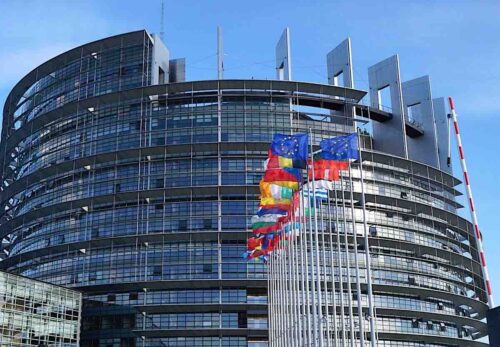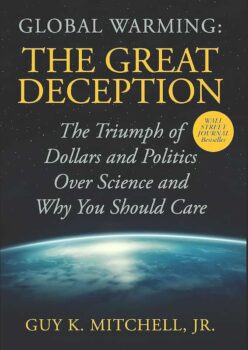
Last week, Racine went public with his plans to begin a formal inquiry into the energy company’s business practices.
Racine is not the first attorney general to pursue an investigation into ExxonMobil, but his office’s decision to hire outside counsel on a contingency fee basis is unique among the AG investigations and represents a concerning new development.
Of likewise concern is how Racine’s office may try to avoid releasing information regarding its investigation of ExxonMobil. In the past, Racine’s office has sought to avoid scrutiny of its climate-related activities.
As recently as December 2018, the Competitive Enterprise Institute filed suit against Racine’s office when he refused to comply with open records requests concerning his office’s involvement with a Michael Bloomberg-funded NYU Law program, which places lawyers in attorneys general offices to assist with environmental litigation.
Racine’s office claims its Bloomberg-funded Special Assistant Attorney General will not be participating in the case, but the affiliated NYU State Energy & Environment Impact Center could still provide crucial PR support for the case.
‘Policing For Profit’
The outside counsel Racine is contracting to investigate ExxonMobil will only be paid if the AG wins his case against the company or reaches a settlement.
Yet the document Racine’s office released introduces the option for the lawyers to “assign to a bank, trust company, or other financing institution funds due or to become due as a result of the performance of this contract.”
In other words, a third party—like a hedge fund—can finance the contractor’s work in this investigation, allowing that entity rights to any winnings from the case.
The arrangement raises the possibility that wealthy entities or individuals supportive of the investigations against ExxonMobil, including the Rockefeller family, could directly fund and even profit from any eventual litigation.
In a story by The Daily Caller, attorney Andrew Grossman – a fellow at the libertarian Cato Institute – explained the problems related to this payment structure:
“It is unusual enough that the government is looking to hire outside attorneys to target a particular private party for law enforcement, on a contingency-fee basis. That gives a whole new meaning to ‘policing for profit.’” (emphasis added)
Several United States Senators have introduced legislation that would require public disclosure of such outside financing.
The general counsel for 30 major companies endorsed the effort earlier this year, and the U.S. Chamber of Commerce has identified a number of problems with this kind of arrangement, including:
“…undercut[ing] plaintiff and lawyer control over litigation because the TPLF [third-party litigation financing] company, as an investor in the plaintiff’s lawsuit, presumably will seek to protect its investment, and can therefore be expected to try to exert control over the plaintiff’s and counsel’s strategic decisions…
“TPLF investments compromise the attorney-client relationship and diminish the professional independence of attorneys by injecting a third party into disputes. Lawyers will inevitably feel at least some obligation to the TPLF investors, who are paying their bills and who might be a source of future business. As a result, counsel may give less attention to the clients’ interests, which should be counsel’s sole concern.”
Other attorneys general offices have not used contingency fees in their investigations of ExxonMobil, but municipalities like Oakland and San Francisco have used this structure, which has received widespread criticism As John Burnett, a former candidate for New York City comptroller, recently explained:
“In essence, plaintiff firms are devising new theories, such as ‘climate crime,’ and using government-backed cases to test these theories in court, in the hopes of raking in billions. Instead of making policy in city hall or in the state legislature, officials are farming out the resolution of complex public policy questions to trial lawyers. This smacks of legal opportunism, not pro bono work to advance the public good.” (emphasis added)
Impartiality Questioned
Since 2016, Racine has been affiliated with attorneys general from Massachusetts and New York, both of whom have pursued high-profile and strongly criticized litigation against ExxonMobil.
Led by disgraced former New York Attorney General Eric Schneiderman, Racine joined the “Attorneys General United for Clean Power,” a coalition endorsed by former Vice President Al Gore and comprised of seven other attorneys general working “on key climate change-related initiatives, such as ongoing and potential investigations into whether fossil fuel companies misled investors and the public on the impact of climate change on their businesses.”
In 2017, Racine intervened on behalf of Schneiderman and Massachusetts Attorney General Maura Healey after they were subpoenaed by U.S. Representative Lamar Smith (R-Tex.) regarding their investigations into ExxonMobil (Rep. Smith had previously requested New York, Massachusetts and the District of Columbia provide documents pertaining to investigations into ExxonMobil, which each jurisdiction declined).
Joining a coalition mostly comprised of the Attorneys General United for Clean Power, Racine signed his name to a letter criticizing Rep. Smith for his perceived interference into state investigations.
Likewise, Racine joined another group of attorneys general filing an amicus brief before the U.S. District Court for the Northern District of Texas which opposed ExxonMobil’s complaint against Massachusetts Attorney General Maura Healey, for violating the company’s First Amendment rights.
Racine’s biased track record and his decision, unique among attorneys general, to use a contingency fee payment structure for hiring outside lawyers will likely invite scrutiny into his investigation into ExxonMobil – especially with an AG office that has avoided transparency in the past.
Read more at EID Climate



















The AG like all those filing these frivolous lawsuits their song should be MONEY THATS WHAT I WANT by Brett Strong